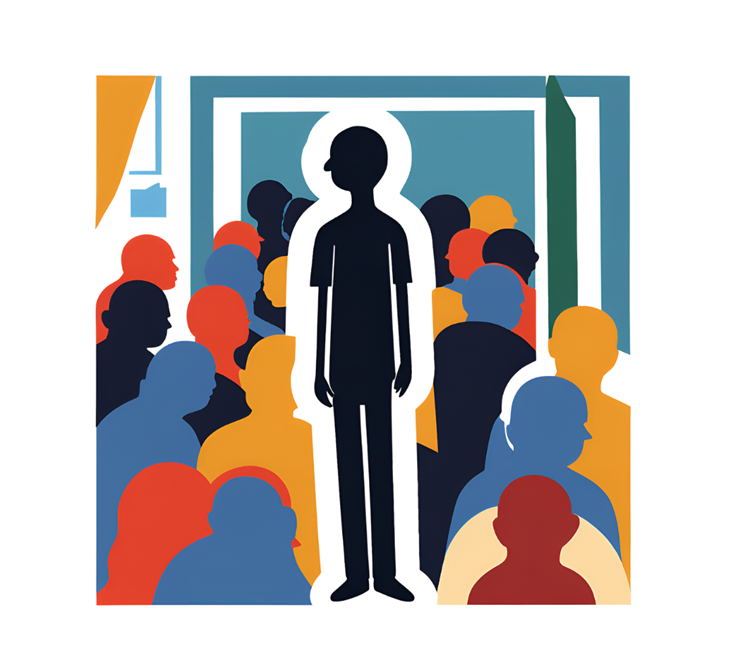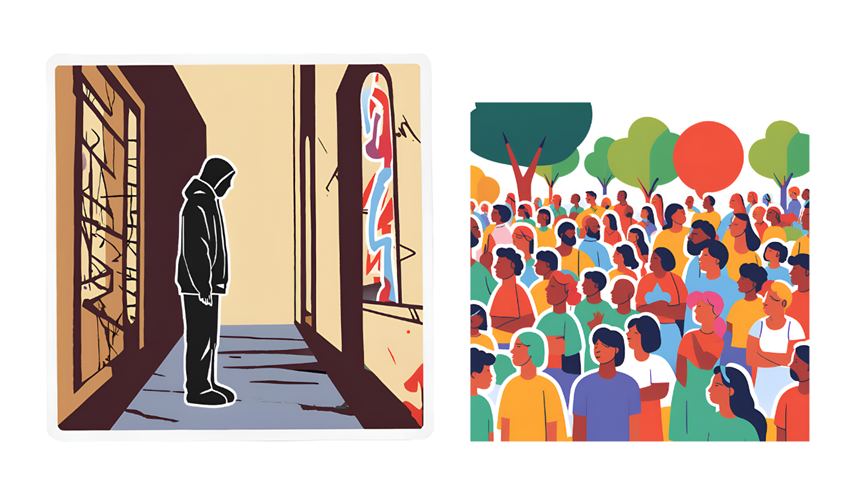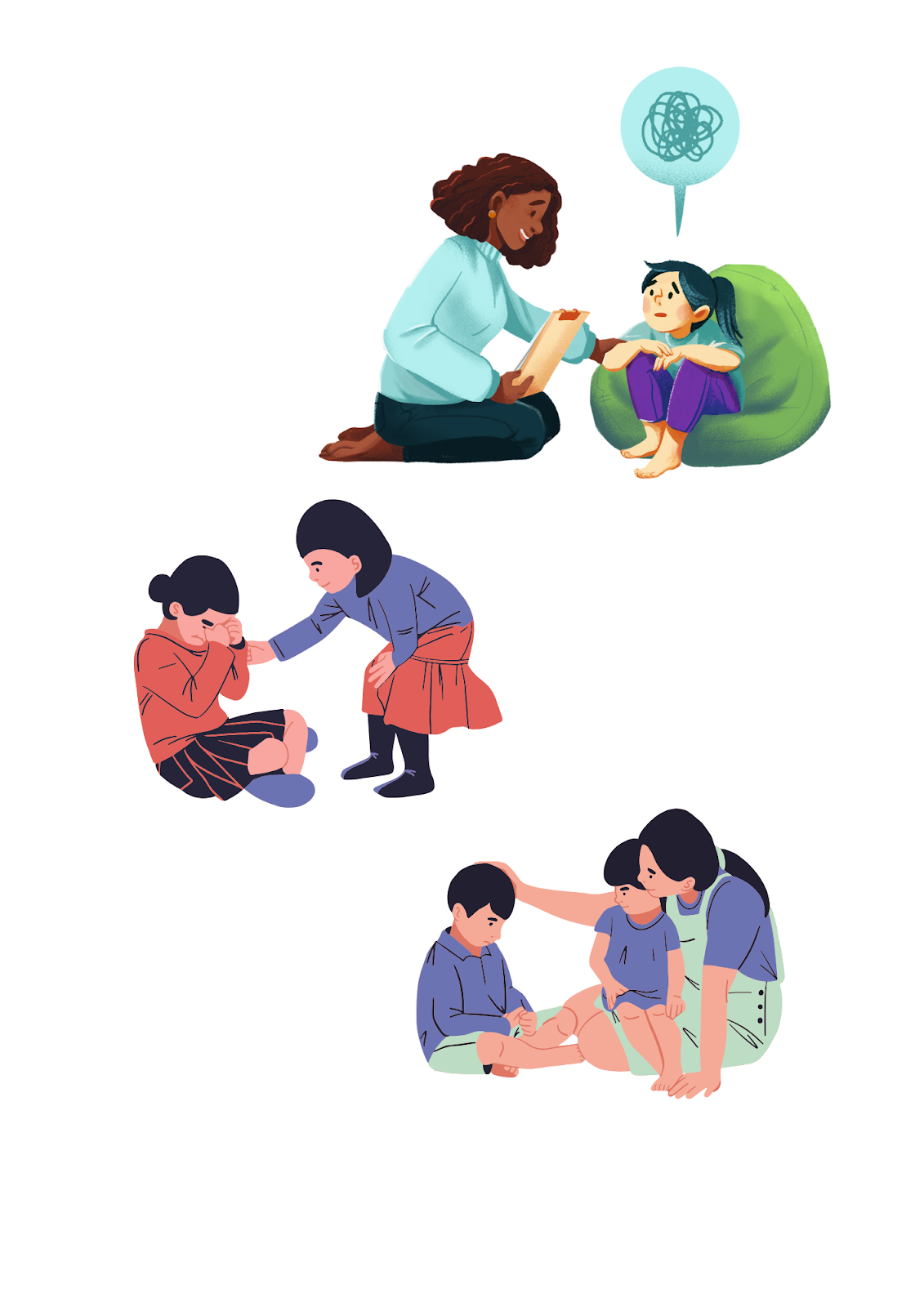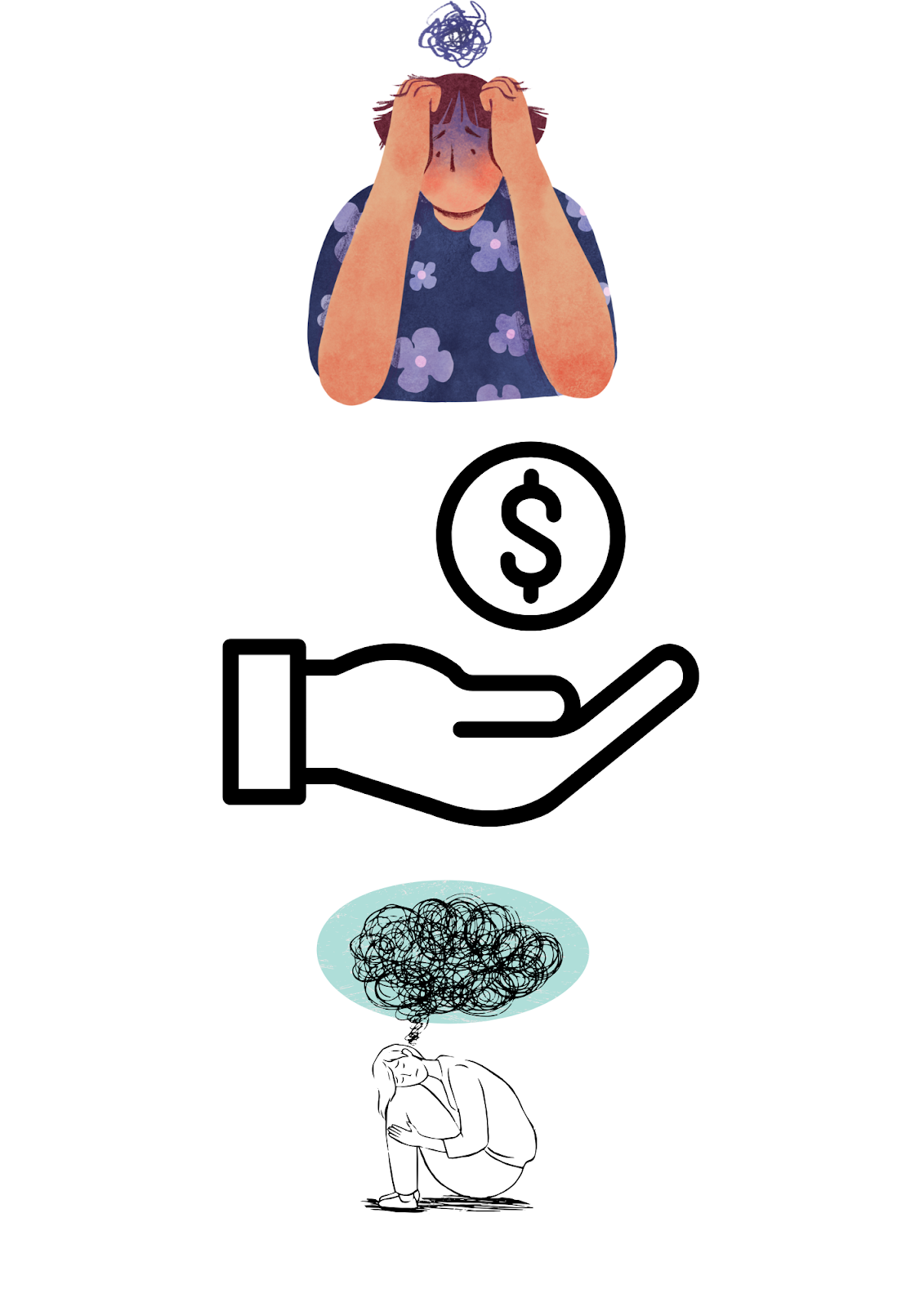STIGMA OF MENTAL ILLNESS: ODD ONE OUT OR READY TO STAND OUT?
It’s
been a good couple of days for you.
Everyone
and everything, is blending in, at the right time and right place.
Most
of your friends and family, have been chanting about you in the best way
possible and have been creating good memories with you.
Until.
You
have been absent at school or work for good amount of time.
Cancelled
all or most, invitations with friends and family to go out.
Now,
no one seems to know what is going on with you.
Your
life seems to have been blow away like ashes after a fire.
You
begin having some thoughts and emotions you may have not encountered before. As
usual, your friends and family are there for you and ask that you go to see a
doctor.
After
a proper review, the diagnosis, strikes you like lightning to the ground. You
have a mental illness. Whoever is around you is confused and may be in denial.
For
a moment, you wonder who else doesn’t need to know. Will your friends still
accept you? Ignore family members? Move away from your current residence or
location? What will happen if they found out?
For
a good moment and time, we always want to blend in and feel like we belong
somewhere, to be accepted and treated like we matter. However, that can
suddenly crumble when a flaw, short coming or hinderance to keep up with those
around us, suddenly appears.
It
can cause us to be seen in a variety numbers of ways from those who may not
know us to those who knows us. The negative view in which people see us due to
a character trait or attribute is known as stigma.
Stigma
in mental illness, is when a person defines someone by their mental illness
rather than someone who is experiencing a mental illness.
Working
around mental illness stigma
Being
diagnosed with a mental illness can bring about a great number of thoughts and
emotions. The individual with mental illness, may potentially deny the
diagnosis and get frustrated, other times, they may hinder themselves from
seeking to know more about their situation or ultimately, they may shun
themselves from society or completely seek to change their identity. This is also
known as self-stigma. It is often one that is grown by one’s inability to
see themselves beyond their mental illness.
The
development of the stigma about mental health by society stem from their
beliefs, norms and cultures within their communities, that feel opposed and
conflicted by the nature and behaviour of individuals living with a mental
illness.
Some
of the stigmas are reinforced due to the consequences that one may be faced
with should they associate with individuals living with mental illness. For
example, a certain community may believe that families born with people living
with mental illnesses are cursed and will spread curses in the community. This
could also take the form of a company or workplace that doesn’t have an
accommodating culture for people living with mental illness and could mean loss
of a job or livelihood.
Therefore,
this shows that stigma against mental illness creates an unsuitable space for
people living with mental illness and brings about harmful effects such as:
-
Feelings of shame, hopelessness and
isolation
-
Reluctance to seek help and treatment
for the mental illness that an individual could potential have
-
Increased misunderstandings from family
and friends
-
Fewer opportunities for employment and
social interaction
-
Bullying and physical harassment
-
Belief by the individual that they may never
overcome the mental illness
Dealing
with mental illness stigma
Sometimes
the pressure and complex thoughts and emotions that develop for a person living
with mental illness can become increasingly tough to handle and they often need
support. Therefore, some of the ways they can find ways to deal with stigma
include:
-
Getting the help that is needed:
As an individual who gets diagnosed with a mental illness, it may be difficult
to seek help and finally agree to what has suddenly appeared. However, it is
important to also understand that by receiving this information you can have
perspective from professional health officials, on how to improve your life. By
refusing help, it puts you in a place of further confusion as you may not be
aware of further complications down the road.
-
Hesitate from isolation:
It is often tempting to stray away from people when you have been diagnosed, to
give yourself a sense of safety from judgement. However, in isolation, majority
of the doubts and fears of society, tend to become magnified and bottling up
emotions can be troublesome. Reaching out, to those you trust and feel safe
confiding in can be a source to let out deep concerns and be a relief to let
troubling emotions out.
-
Connecting with others:
In isolation, despite the allure of having safety and comfort in our own
company, it can also make us feel as though, we may be the only ones who have
the mental illness. By being able to look for mental health support groups, we
slowly learn that they are others willing to help and understand us, as well as
others who are diagnosed with similar mental illnesses and wishing to meet
others like them, which can bring a sense of belonging and community to support
through life.
-
Understanding people’s judgement:
At times, the judgement from other people due to our illness can feel very
discomforting and never seem to leave our minds even after a long duration
after they mentioned it. It is also important to remember that most of their
judgements come from a place of lack of understanding of your mental illness
and knowing you as a person. Therefore, remember to always see most judgements
as a reflection of people who mostly need an education in what mental illness is,
rather than something about you.
Apart
from the individual who lives with mental illness, the people in the person’s
lives can also suffer an amount of stigma from society. Some of the ways in which
they can deal with stigma can involve:
- Getting
educated on your friend’s or family members mental illness:
Your friend or family member, may seem as though they are only causing trouble
and instability, from their symptoms when you first experience them and this
can cause people to pass judgement which makes you feel labelled with them. To
be able to prevent being able to take their actions personally, it is important
to educate yourself on the mental illness they are living with, so as not to
believe other people’s harmful words and actions.
- Find
mental health support groups: Whenever our friend or
family member is living with a mental illness, it can bring sense of shame or
failure. This can lead to a desire to isolate and disappear from certain social
gatherings. Instead, it can be more fulfilling to find mental health support
groups where you can find people who can understand your journey and help you feel
comforted. Likewise, it can help to talk with other families who are also going
through the same issues so as to have a space to discuss matters you are going
through and have a sense of community.
- Invest
in relationships that are trusted and safe: Despite having
mental health support groups, during our daily lives, it is important to learn
the relationships you need to cultivate to support you during this time. It
could be people who are open to helping you work through complex thoughts and
emotions you go through or people who are able to give you a space and
environment to work through the complexities. By doing this, it helps keep you
on toes on your daily activities and assist in our mental health, which at
times may take a burden while trying to support the family member or friend
living with mental illness.
They
are many areas in which stigma for people living with mental illness can occur
which can include various cities, towns, workplaces etc. Some of the ways in
which one can deal with them will vary, however, it is important to note that
at the core of any judgement due to mental illness, is an uneducated point of
view on mental illnesses.
Conclusion
Living
with a mental illness can bring about a whole range of changes in the individual’s
life as well as those around them.
The
changes can be difficult to cope with from symptoms and furthermore, the stigma
from society.
The
stigma is often brought about by beliefs, cultures norms and traditions by society,
and to some extent those that are unintentionally placed by the individual
living with a mental illness due to their doubts and fears of facing society.
It
is important to note that despite the difficulties that are faced with both the
individual living with mental illness and those around them, that they often
not alone and they are ways in which they can seek support.
Education
about mental illness also known as psychoeducation, is also the most powerful
tool in helping to get rid of stigma that has enveloped society. It helps
people learn the factual matters of mental illness which helps improve
attitudes towards mental illness and how to live with individuals living with a
mental illness.
References
https://www.family.cmho.org/dealing-with-stigma/
https://www.psychiatry.org/patients-families/stigma-and-discrimination





Comments
Post a Comment